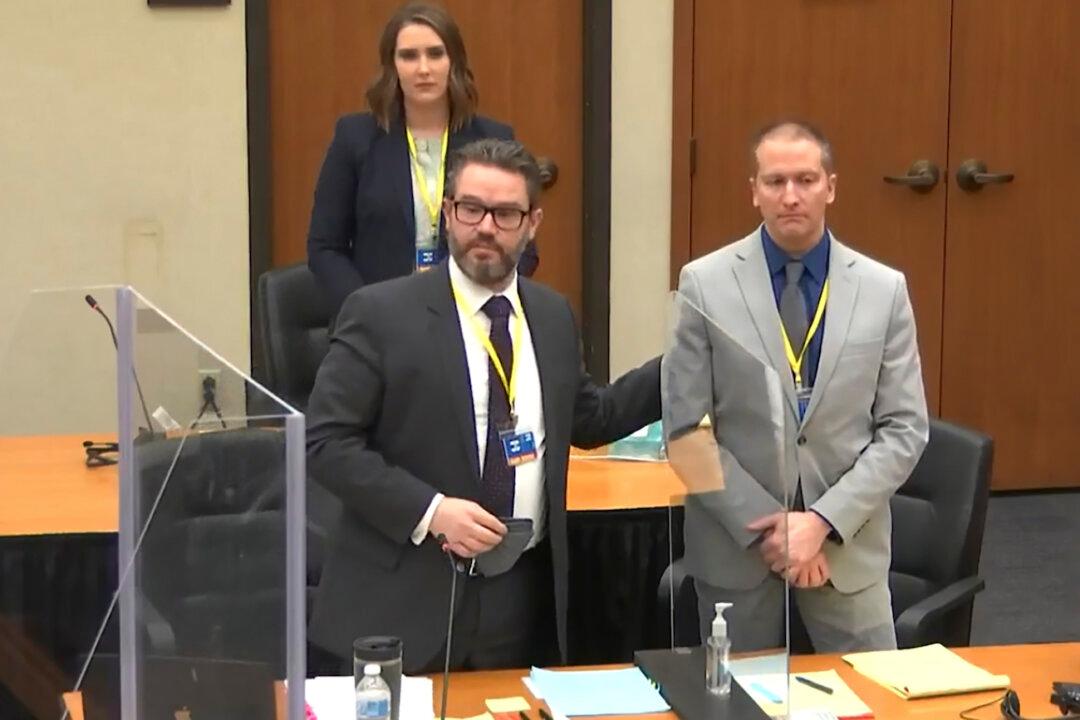A judge in the trial of former Minneapolis police officer Derek Chauvin, who faces charges in connection with George Floyd’s death, ruled Friday that the trial would not be moved, rejecting a request by the defense that was based on tainted jury concerns.
Hennepin County Judge Peter Cahill on Friday denied the request by Eric Nelson, Chauvin’s defense attorney, who argued that his client’s ability to get a fair trial had been jeopardized when news broke of a multi-million dollar settlement to Floyd’s family.





